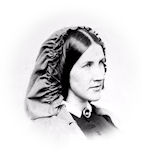May 7.—This afternoon the rebel pickets above Columbiana Bridge, on the east side of the Shenandoah River, Va., were driven back by detachments under Col. Foster, who was subsequently ambuscaded by two rebel regiments. The action lasted an hour, when Foster withdrew in good order. The enemy did not pursue. A company of Vermont cavalry was cut off and surrounded, but escaped by swimming the river. The enemy’s loss is not known, except seven prisoners, belonging to the Sixth Virginia and Seventh Louisiana, which indicates that the enemy’s force was one of Ewell’s brigade.—(Doc. 8.)
—General Franklin’s division, Army of the Potomac, was attacked while landing at WestPoint, Va., by the rebel Army of the Peninsula. After a hard fight the rebels were repulsed with considerable loss, and the landing effected. (Doc. 9.)
—A Letter from Algesiras, Spain, published this day, gives the final account of the pirate Sumter. She had lain closely blockaded in Gibraltar, by the United States gunboat Tuscarora, which lay in Spanish waters within sight of her, for two months. Thirteen of the Sumter’s crew meanwhile deserted to the gunboat. Seeing no other end to such a state of affairs, the Captain of the Sumter discharged his crew and sold his ship.—N. Y. Times, May 7.
—General Cox’s advance, consisting of part of the Twenty-third Ohio, under Major Cauley, occupied Giles’s Court-House and the narrows of New-River, driving out the rebels, who were taken by surprise. A considerable quantity of commissary stores was taken, and some twenty privates made prisoners. The surprise prevented the burning of the place, as the rebels intended. The citizens remained, and most of them seem loyally disposed.—General Fremont’s Despatch.









